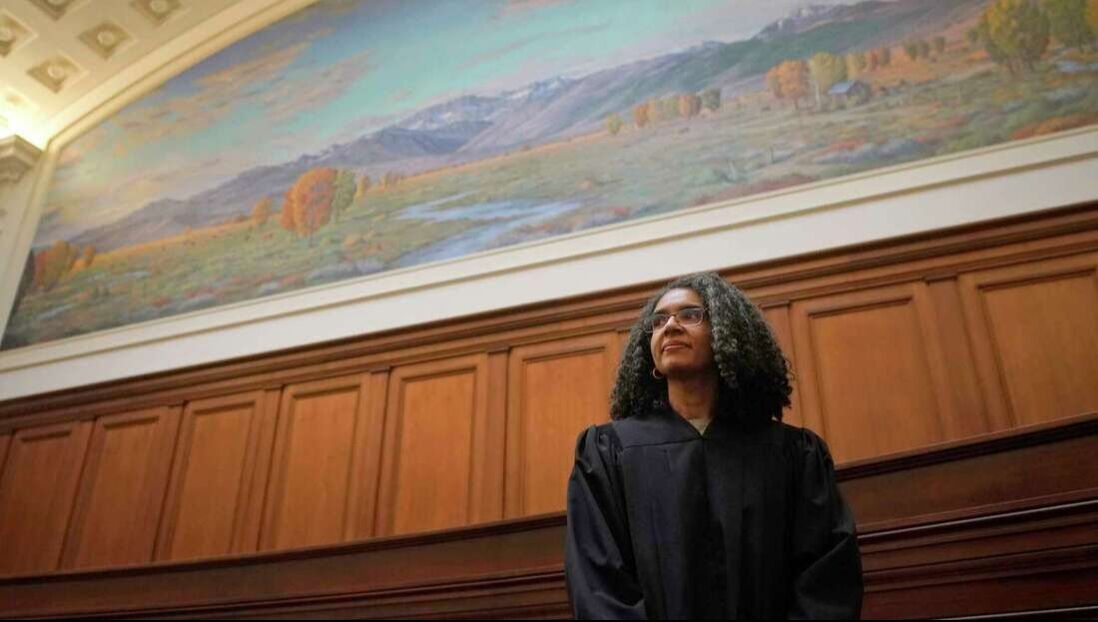|
PPSA will report on surveillance and privacy records of the three candidates most often mentioned as making up President Biden’s “shortlist” to replace Justice Stephen Breyer on the U.S. Supreme Court – Judge Ketanji Brown Jackson of the U.S. Court of Appeals for the District of Columbia, Leondra Kruger, California Supreme Court Justice, and J. Michelle Childs, a federal district judge in South Carolina. In this piece, PPSA examines the record of Justice Kruger. Justice Stephen Breyer has a mixed record on privacy, surveillance, and Fourth Amendment rights. He joined the majority in finding that a suspect’s cell phone deserves a heightened level of protection, and that the government must secure a warrant before obtaining a suspect’s location history from a wireless carrier. On the other hand, he was willing to give police considerable latitude in conducting physical searches and allowed them to take mandatory DNA swabs from arrestees in Maryland v. King (2013).
With Justice Breyer’s pending retirement from the Supreme Court, President Biden has the chance to choose a nominee who could be worse, better, or the same as Justice Breyer when it comes to privacy and Fourth Amendment rights. As Justice Byron White famously said, every new Justice makes a “different court,” even if she is replacing someone she largely agrees with. How might the newly comprised Supreme Court be a different court on the myriad surveillance and privacy issues sure to come before it? “If Justice Leondra Kruger of the California Supreme Court is the nominee, the Court might not change much at all with respect to the Fourth Amendment,” says Mark Udall, former U.S. Senator from Colorado and Senior Policy Advisor for the Project for Privacy and Surveillance Accountability. “New justices can surprise you, but my best guess is that she would display a mixed and highly nuanced view of Fourth Amendment issues on the Court, just like Justice Breyer.” People v. Buza, an opinion authored by Justice Kruger, suggests that she would apply the law similarly to Justice Breyer. Buza’s facts are easy enough to summarize. California law “requires law enforcement officials to collect DNA samples, as well as fingerprints, from all persons who are arrested for . . . felony offenses.” Pursuant to that law, when Mark Buza was arrested for “arson and related felonies,” a jail official sought to swab the inside of his cheek. After he refused, he was convicted of refusing to comply with the DNA-collection efforts. He challenged his conviction, and the California Court of Appeal held that the act violated his Fourth Amendment rights. While the case was pending, the U.S. Supreme Court—in the Maryland v. King opinion joined by Justice Breyer—decided that the collection of DNA is a “legitimate police booking procedure” and “reasonable under the Fourth Amendment.” Guided by King, the California Supreme Court sent this case back to the Court of Appeal. Once more, the Court of Appeal reversed, this time holding that the DNA Act violated California’s Constitution. The state again appealed to the California Supreme Court. In an opinion written by Justice Kruger and joined by three other justices over the dissents of the remaining three, the California Supreme Court reversed the Court of Appeal’s holding with respect to the California Constitution. PPSA finds that conclusion troubling. Although the federal constitution sets the floor for what must be protected, states are free to protect privacy more robustly. Thus, although King’s interpretation of the Fourth Amendment was “entitled to respectful consideration,” the California Supreme Court could have gone further when interpreting California’s “parallel” protections. Instead, it continued the unfortunate path of treating the Fourth Amendment as “substantially equivalent” to its Californian equivalent. To that end, the Court followed the Supreme Court in King and held that, under the California Constitution, it was reasonable to “require the defendant” who was validly arrested to “swab his cheek as part of a routine jail booking procedure.” When the Supreme Court decided King, four Justices, led by Justice Antonin Scalia, dissented. In a scathing rebuke, Scalia wrote that Maryland’s DNA-collection procedures were a serious threat to the privacy that “lies at the very heart of the Fourth Amendment.” Scalia wrote that the majority’s opinion allowing such collections threatens to turn on its head the Fourth Amendment’s promise that the American people will not be searched for evidence of a crime when there is no basis for assuming guilt. Scalia and the other dissenters understood that the “DNA [was] being taken . . . to solve crimes” and emphasized that any belief that it was collected merely to “identify those in the State’s custody” would “tax[] the credulity of the credulous.” He was right. Justice Kruger could have joined him and other dissenters when she decided Buza. Instead, she was the deciding vote and authored an opinion taking the same position that Justice Breyer did. If one opinion is indicative of how a Justice Kruger would rule in other privacy-related cases, she may not make much of a “different” court at all in Fourth Amendment cases. We’ll continue reviewing her opinions and those of the other potential front-runners over the next few weeks. Comments are closed.
|
Categories
All
|


 RSS Feed
RSS Feed